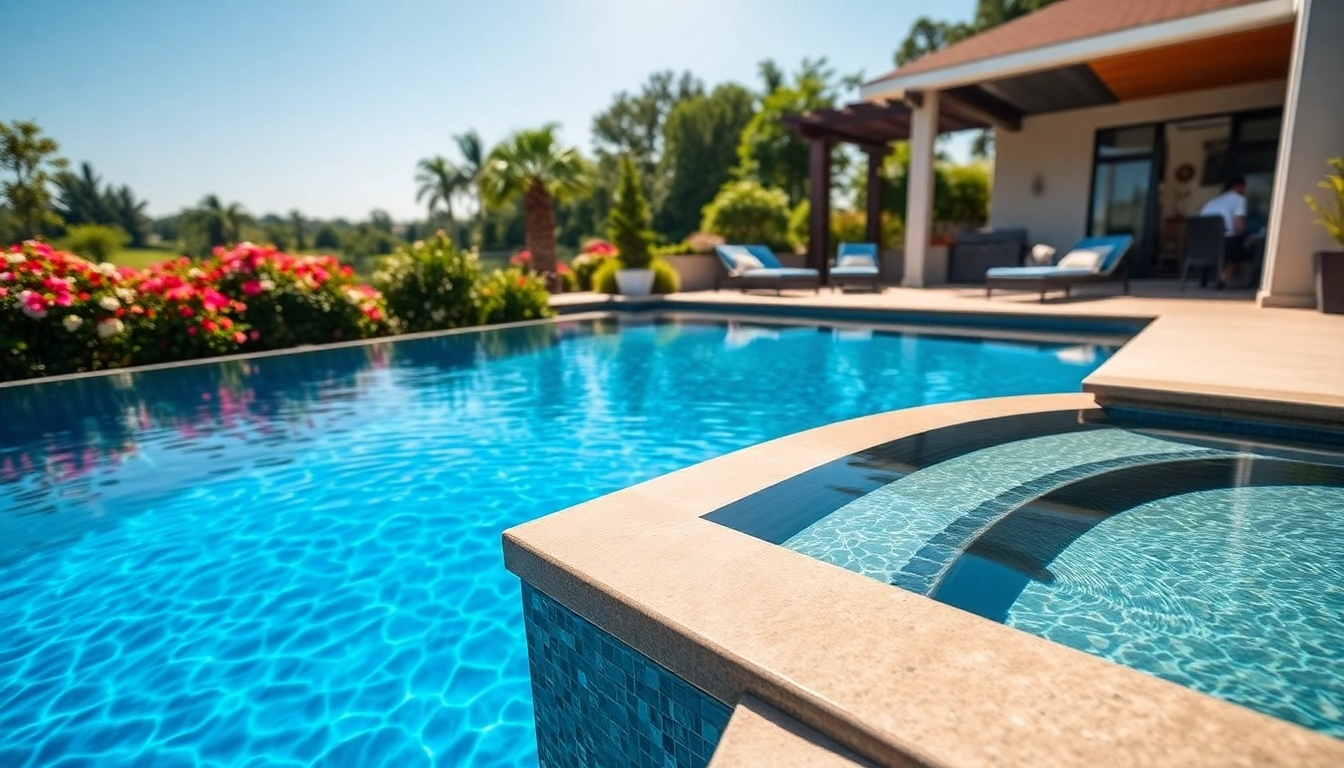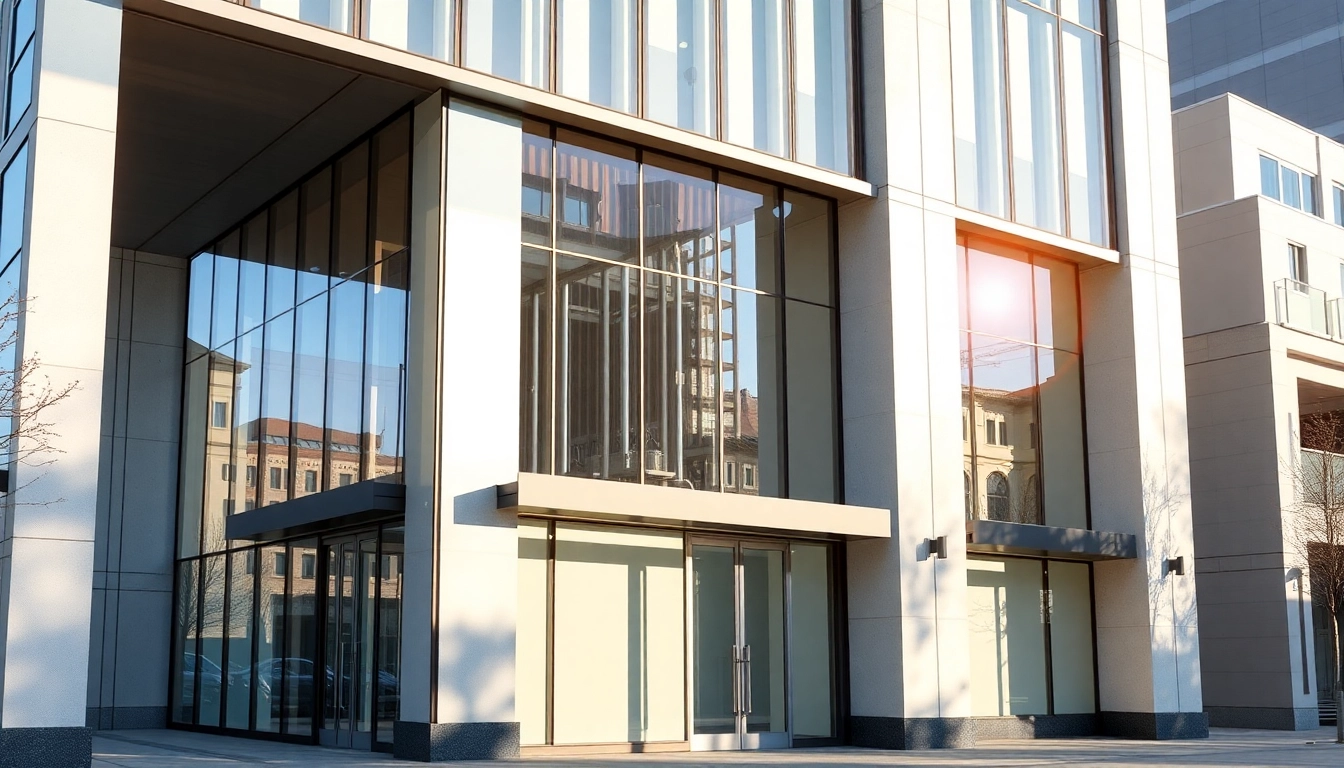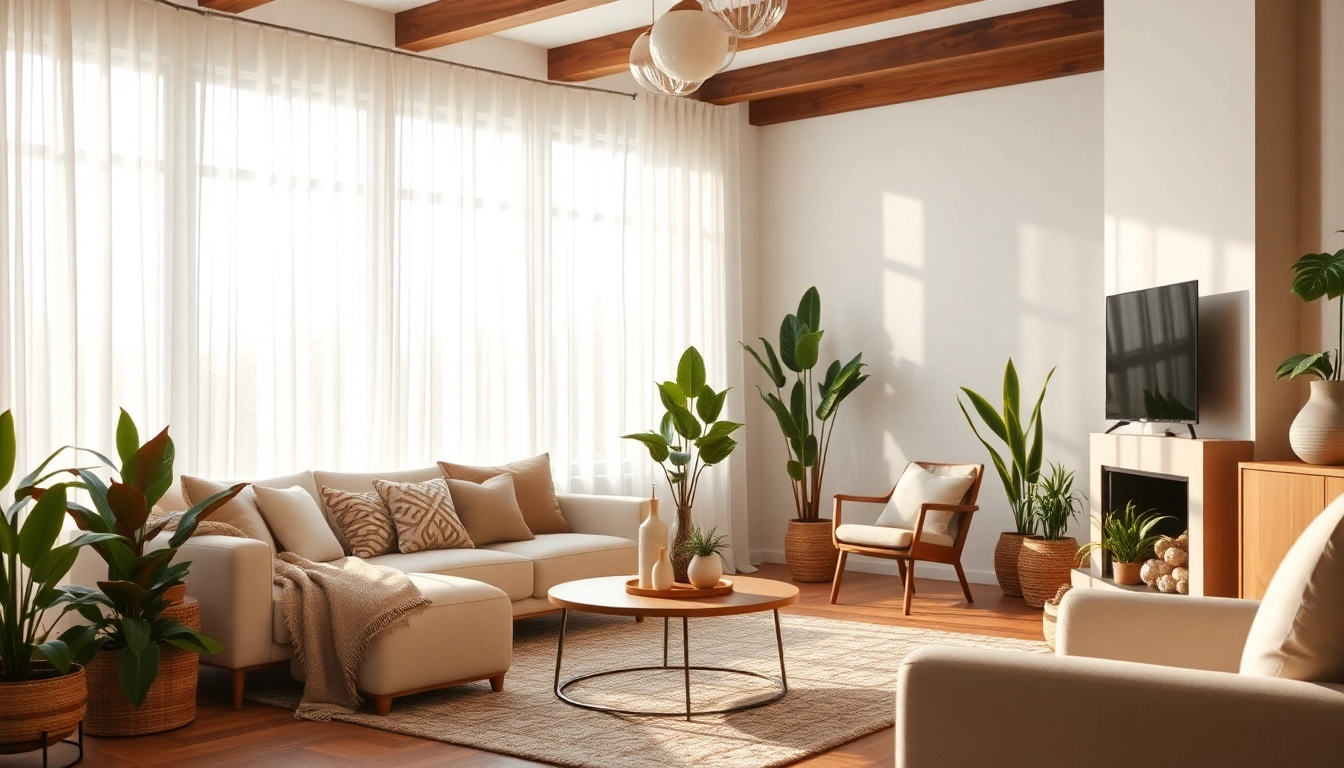Understanding Custom Pools
In the realm of outdoor living, custom pools stand as a prominent feature that not only enhances the aesthetic of any backyard but also provides a unique recreational space tailored to the homeowner’s desires. As more homeowners seek personalized features that reflect their taste and lifestyle, the demand for custom pools has significantly risen. This article explores what constitutes a custom pool, the benefits of choosing one over traditional options, and essential design considerations to keep in mind.
What Constitutes a Custom Pool?
A custom pool is defined primarily by its tailored design and construction, allowing homeowners to dictate every aspect of the pool’s appearance and functionality. Unlike pre-fabricated pools that come in fixed shapes and styles, custom pools are designed specifically for the individual space they occupy, accommodating landscaping features, existing home styles, and personal preferences. This can encompass varying shapes, sizes, depths, and materials, ultimately producing a pool that feels uniquely personal.
Typical features of a custom pool might include unique water features such as waterfalls and fountains, integrated spa areas, and even advanced heating and lighting systems to enhance usability and enjoyment. Every detail is adjustable according to the homeowner’s wishes, from the pool deck materials to the surrounding landscape design.
Benefits of a Custom Pool Over Pre-Fabricated Options
Investing in a custom pool comes with several advantages that pre-fabricated options simply cannot match. Here are some key benefits:
- Personalization: Custom pools allow for complete artistic freedom, enabling homeowners to create a space that reflects their unique vision and complements their property.
- Higher Property Value: A well-designed custom pool can significantly enhance the resale value of a property, offering potential buyers a luxurious and inviting amenity.
- Optimized Space Utilization: With a custom design, pools can be tailored to fit any outdoor space perfectly, maximizing usage and ensuring that it looks natural in its environment.
- Advanced Features: Homeowners can incorporate technology and features that suit their lifestyle, such as automated cleaning systems, lighting, and energy-efficient heating options.
Key Design Considerations for Your Custom Pool
When designing your custom pool, several critical factors need consideration to ensure it meets your needs and complements your outdoor space effectively. Here are some essential elements to ponder:
- Location: The position of the pool within your property will have a significant impact on its design. Consider factors such as sunlight exposure, views, and existing landscaping.
- Size and Shape: The dimensions and shape should reflect both personal preferences and the intended use. For example, a large rectangular pool may be ideal for swimming laps, while a freeform design could suit a more relaxed atmosphere.
- Materials: The choice of materials for the pool’s lining (e.g., concrete, fiberglass, tiles) and decking (e.g., stone, pavers, wood) will influence both aesthetics and maintenance requirements.
- Accessibility: It’s critical to ensure safe access to the pool area, especially if there are children or elderly individuals in the household. Consider the incorporation of steps, railings, and nonslip surfaces.
Popular Custom Pool Styles
After deciding to invest in a custom pool, the next exciting step is choosing the style that best represents your vision and complements your landscape. Below, we explore several popular custom pool styles, each offering distinct charm and functionality.
Infinity Edge Pools: Design and Appeal
Infinity edge pools, also known as vanishing edge pools, are a cutting-edge design choice for homeowners seeking a truly elegant look. These pools feature a design where one edge appears to merge seamlessly with the surrounding landscape, often creating the illusion that the water extends into a distant horizon.
The visual appeal of infinity pools is undoubtedly captivating, often enhancing properties with scenic views by making the landscaping and body of water appear as one cohesive element. However, they do require more meticulous engineering and construction methods compared to traditional pools, as proper drainage systems and structural calculations are crucial.
Gunite vs. Fiberglass: Which Custom Pool Material to Choose?
The cornerstone of any custom pool’s quality lies in the material used for construction. Two of the most common materials are gunite and fiberglass, each with its own set of benefits and considerations:
- Gunite: Made from a mixture of sand, cement, and water, gunite pools are incredibly durable and can be formed into any shape or size. They allow for a wide range of finishes, such as plaster or tile, giving homeowners more customization options. However, they typically involve a longer build time and potentially higher maintenance costs due to surface porosity.
- Fiberglass: Fiberglass pools come pre-molded from a singular piece of material, which significantly reduces construction time. They often require less maintenance, have a smooth surface that is more comfortable to the touch, and come with a lower lifetime cost. However, they are limited in design versatility compared to gunite pools and must fit within standard shapes and sizes.
Incorporating Unique Features in Your Custom Pool
A custom pool provides an excellent opportunity to incorporate various unique features that enhance both its beauty and functionality. Some exciting additions might include:
- Waterfalls: Incorporating a waterfall can elevate the visual appeal and create a soothing sound, contributing to a tranquil oasis.
- Spa Zones: Installing a hot tub or spa section adjacent to the pool creates an inviting area for relaxation and hydrotherapy.
- Lighting Effects: Special lighting systems can enhance the ambiance at night, allowing for entertaining or relaxing by the pool area after sunset.
- Outdoor Kitchens and Bars: Integrating a cooking or bar area can transform the pool space into the ultimate outdoor entertainment venue.
Planning and Budgeting for a Custom Pool
Planning for a custom pool involves more than just choosing a design; it requires careful budgeting and strategic planning to ensure your project meets both aesthetic and financial expectations. Below, we outline key aspects to consider during this pivotal phase.
Setting a Realistic Budget for Your Custom Pool
Establishing a budget is one of the most crucial steps in the pool planning process. The costs of a custom pool can vary dramatically based on size, design, materials, and additional features. Here is a breakdown of potential expenses you should account for:
- Construction Costs: The primary expense is the cost of construction itself. This includes excavation, materials, and labor.
- Permitting and Inspections: Depending on your location, there may be necessary permits and inspections required throughout the building process.
- Landscaping: An aesthetically pleasing outdoor environment may require additional landscaping costs, including plants, mulch, and outdoor furniture.
- Maintenance: It’s essential to budget for ongoing maintenance to keep the pool in optimal condition, including cleaning, chemicals, and seasonal preparations.
Finding the Right Pool Contractor
Once a budget has been established, it’s essential to find a reputable pool contractor with extensive experience in custom builds. When choosing a contractor, consider the following:
- Portfolio: Look for contractors that have a strong portfolio showcasing previous custom projects, especially those that reflect styles similar to your preferences.
- Reviews and References: Seek feedback from past clients to gauge satisfaction regarding quality of work, adherence to timelines, and post-project service.
- Licensing and Insurance: Ensure that your selected contractor possesses the necessary licenses and has proper insurance to protect both parties during the build.
Permits and Regulations for Building a Custom Pool
Before commencing any construction, it is vital to understand the permits and regulations that may govern your project. Depending on local municipal laws, you may need to consider:
- Building Permits: Nearly all areas require a building permit for pool construction, which ensures that safety and zoning regulations are followed.
- Health and Safety Codes: Familiarize yourself with safety codes that may affect your pool access, fencing, and overall safety measures for children and pets.
- Environmental Considerations: In some regions, environmental regulations may impact design choices if the pool affects local ecosystems or water runoff.
Maintenance Tips for Your Custom Pool
Once your custom pool has been completed, ongoing maintenance is essential to ensure its longevity and enjoyment. Below are several crucial maintenance tips and guidelines to keep your pool in tip-top shape.
Essential Maintenance Best Practices
Regular maintenance practices for your custom pool can significantly prolong its life and functionality. Here are some best practices to consider:
- Routine Cleaning: Skim the surface of the water weekly and brush the walls and floor periodically. Consider investing in a robotic pool cleaner for effortless maintenance.
- Skimming and Brushing: Removing debris and brushing walls and steps prevent algae buildup and staining.
- Monthly Water Tests: Regularly test water chemistry—pH levels, chlorine levels, and alkalinity—to ensure safe swimming conditions and overall water quality.
Maintaining Water Quality in Your Custom Pool
Maintaining a clean water supply is vital to the enjoyment and health of your pool. Here’s how to maintain optimal water quality:
- Chlorination: Ensure proper chlorination levels to prevent algae and bacterial growth. Shock treatments can be used periodically to raise chlorine levels quickly.
- Filtration: Regularly clean and replace filters according to the manufacturer’s instructions to ensure efficient operation.
- pH Balance: Aim to keep the pH level between 7.2 and 7.8 for optimal comfort and equipment longevity.
Seasonal Custom Pool Care Guide
Different seasons present varying maintenance needs. Here’s a seasonal guide to pool care:
- Spring: Inspect the pool structure for damage post-winter and clean the pool thoroughly before the season starts. Balance water chemistry as temperatures rise.
- Summer: Regularly monitor water levels due to evaporation and increase chemical testing frequencies due to higher usage.
- Fall: After the last swim, clean the pool and prepare it for winter; consider covers that fit snugly.
- Winter: If you live in colder climates, it’s essential to winterize the pool, which involves draining water levels, covering the pool, and maintaining the filtration system.
Enhancing Your Custom Pool Experience
Beyond functionality, enhancing the atmosphere around your custom pool can turn your outdoor space into a luxurious escape. Here are some ideas to elevate the experience:
Landscaping Ideas to Complement Your Custom Pool
Proper landscaping can dramatically transform your pool area into a vibrant oasis. Consider these landscaping ideas:
- Native Plants: Use native plants that thrive in your local climate for sustainable landscaping with minimal maintenance.
- Pathways: Create walkways that lead to the pool with decorative stones or pavers for added charm and safety.
- Seating Areas: Incorporate seating areas or fire pits within your landscaping for relaxation and entertainment.
Outdoor Furniture and Accessories for Poolside Comfort
Choosing the right outdoor furniture can significantly enhance comfort and luxury by the pool. Here’s what to consider:
- Chaises and Loungers: Comfortable loungers provide a relaxing spot for sunbathing or reading by the pool.
- Shades and Pergolas: Adding shade structures can enhance comfort while providing protection from the sun during hot days.
- Decorative Pillows and Throws: Utilize cushions and throws in weather-resistant fabrics to add color and comfort to your outdoor seating.
Pool Lighting Options for Ambiance and Safety
Pool lighting plays a crucial role in creating the right ambiance for your pool area. Explore the following lighting options:
- Underwater LED Lights: These lights not only illuminate your pool but can change colors, adding a fun atmosphere during evening swims.
- Pathway and Landscape Lighting: Safely illuminate surrounding pathways and landscaping to enhance safety while creating a welcoming environment.
- Feature Accent Lighting: Highlight unique features such as waterfalls or spa areas with accent lighting to enhance their beauty at nighttime.



